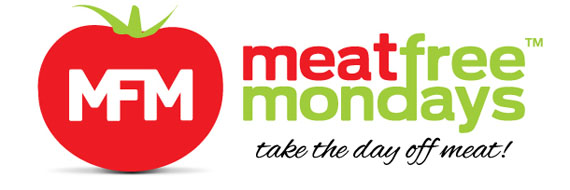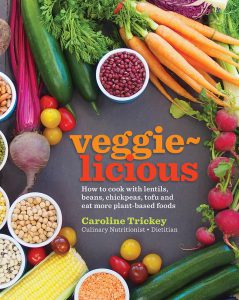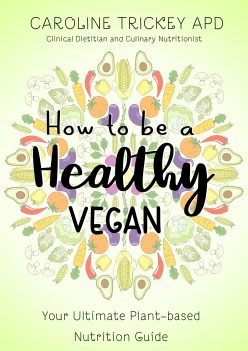Meat Free Mondays
Meatless Monday is an international campaign started in 2003, that encourages people to not eat meat on Mondays in order to improve their health and the health of the planet. It states that if we all eat meat-free (which includes pork, poultry and fish) for one day each week, together we can reduce the environmental problems associated with meat production.

This movement is quickly getting recognition globally and here in Australia there are several websites supporting this initiative – foodwise.com.au is one of them which has some great recipes.

In 2009, Sir Paul McCartney launched his not-for-profit campaign and Meat free Monday website which includes recipes and information on their recently launched Meatfree Monday Cookbook (some of their yummy recipes can be found on foodwise). Using details from his website I have summarised below many of the reasons why we should all have more meat-free days (not just Monday!)

Environment: The livestock industry is estimated to contribute 20-50% of global greenhouse gas (GHG) emissions. Beef is the most energy intensive of all the meats we eat and production of 1kg of beef results in GHG emissions equivalent to the amount of carbon dioxide emitted by an average car over a distance of 250 kilometres.

Global Hunger: Animals convert plant protein and energy into meat protein and energy inefficiently. For example, it takes 8kg of grain to produce 1kg of beef. Given that some 800 million people on the planet suffer from hunger or malnutrition, much of the grain grown which could feed them goes to feed cattle, pigs and chickens instead. It is estimated that 20 vegetarians can be fed on the amount of land needed to feed one person consuming a meat-based diet.

Improved Health: Eating meat-free can assist in improving your health. We all eat more meat and other protein rich foods than we need to stay healthy (more than enough to also assist in building muscle!). A high beef, pork or lamb intake has been convincingly shown through studies to increase the risk of bowel cancer, heart disease and contribute to obesity. Bowel cancer kills 80 Australians a week (it is our 2nd largest cause of cancer deaths) and affects both men and women, young and old. Whereas a well-planned plant-based diet can lower your risk of heart disease, bowel cancer, type 2 diabetes and obesity.

Ethical Treatment of Animals: The conditions in which more than half the animals reared for food live are very unpleasant. Many breeds are chosen due to their ability to gain weight easily on the unnaturally high grain-based diets they are fed. Factory farms encourage crowded, stressful and often unhygienic conditions and have to use antibiotics to reduce the spread of infection in these densely populated farms. Traces of these antibiotics can remain in the meat we eat and in the faeces of these animals which is often used to fertilise crops (including the medium that mushrooms are grown in). This is a reason to choose only organic meat when you do choose to eat meat and sustainably harvested fish.

Cost: You can also save money eating meat-free, as meat, pork, chicken or fish are a lot more expensive than their vegetarian protein alternatives such as lentils, dried beans, split peas, chickpeas or tofu.

You too can do your bit to contribute to a cleaner, more sustainable, healthier world.
My husband and I have Meat free Mondays (and many other meat-free days during the week) so I will share with you some of our favourite meals as I make them, starting with tonight’s dinner – Red lentil, eggplant and basil lasagne.













